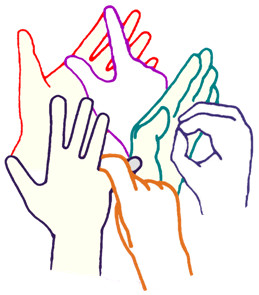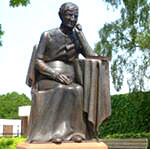NEW conferences and courses on mental health, transitions, challenging behaviour, gender, schools and more
 NEW conferences from The National Autistic Society:
NEW conferences from The National Autistic Society:
Autism and mental health
19 May, London
Featuring Professor Tony Attwood and Dr Wenn Lawson.
Diagnosing and assessing mental health problems in children and adolescents with autism can be very difficult. This National Autistic Society's conference will give you the tools and strategies you need to identify and provide targeted support for students with autism.
www.autism.org.uk/mentalhealth2015B
Enabling good transitions for people with autism
1 June, Manchester
Making the transition from early years up to higher education can be one of the biggest changes we make in our lives. This National Autistic Society's conference will help to develop a greater understanding of transitions and will provide various practical approaches for supporting children throughout the process.
www.autism.org.uk/transitions2015B
Understanding and managing challenging behaviour
25 June , London
Featuring Professor Gary Mesibov.
This National Autistic Society's conference will present the latest research and best practice in understanding and responding to behaviour that challenges us in children and adults with autism.
www.autism.org.uk/behaviour2015B
NEW training courses from The National Autistic Society:
A day with Professor Tony Attwood
15 May, Birmingham
Professor Tony Attwood will deliver a workshop covering two key topics: cognitive abilities, a different way of thinking and learning profile, and the profile and abilities in girls and women with Asperger syndrome.
www.autism.org.uk/Attwood2015B
Understanding autism and introduction
to the SPELL framework
20 May, Barnsley • 17 June, London
This course will provide an overview of the autism spectrum, aiming to support delegates with recognising and understanding the key areas of difficulty experienced by people with autism. The focus will then be on providing effective support for individuals with autism, based on The National Autistic Society's SPELL framework. SPELL is a framework for understanding and responding to the needs of children and adults on the autism spectrum developed through evidence based practice, useful in identifying underlying issues, reducing the disabling effects of the condition and providing a cornerstone for communication.
www.autism.org.uk/SPELL2015B
TEACCH three-day training course with Professor Gary Mesibov
22 - 24 June, Manchester
The primary aim of the TEACCH programme is to help to prepare people with autism to live or work more effectively at home, at school and in the community. Special emphasis is placed on helping children with autism and their families. This course is organised by the National Autistic Society.
www.autism.org.uk/TEACCH2015B
Autism and gender dysphoria
Dr Wenn Lawson
30 June, Nottingham, 9.30 – 12.30
www.autism.org.uk/Lawsongender2015B
Autism and Schools
Dr Wenn Lawson
3 July, Birmingham
3 July, Birmingham, 9.30 – 4.00
www.autism.org.uk/Lawsonschools2015B
Active for Autism courses for PE teachers
Various dates, various venues
This National Autistic Society's project is designed to support people with autism in sport or physical activity by providing training for sports practitioners. We are offering training for coaches, PE teachers and anyone involved in delivering sport or physical activity. Various courses and bespoke consultancy packages available.
This email address is being protected from spambots. You need JavaScript enabled to view it.


 The online version of the Deafblind Studies programme will go live mid May 2015. After a successful pilot, this newly developed version of the course makes a wider range of learning opportunities available in order to meet the needs of a broader group of professionals who support deafblind people to lead the lives they would wish to lead.
The online version of the Deafblind Studies programme will go live mid May 2015. After a successful pilot, this newly developed version of the course makes a wider range of learning opportunities available in order to meet the needs of a broader group of professionals who support deafblind people to lead the lives they would wish to lead. Barnardo's is leading on an a UK initiative, funded by the Government's Innovation Programme, that will work with leading experts, local authorities and organisations already active in the field of FGM to help build a specialist, joined up service that will focus on safeguarding girls and preventing further cases.
Barnardo's is leading on an a UK initiative, funded by the Government's Innovation Programme, that will work with leading experts, local authorities and organisations already active in the field of FGM to help build a specialist, joined up service that will focus on safeguarding girls and preventing further cases. 'Quality' continues to be the defining term for early childhood education and care. There is now a broad consensus among policy makers, practitioners and researchers that 'access to universally available, high-quality inclusive ECEC services is beneficial for all' (to quote a high profile policy document published by the EU Commission).
'Quality' continues to be the defining term for early childhood education and care. There is now a broad consensus among policy makers, practitioners and researchers that 'access to universally available, high-quality inclusive ECEC services is beneficial for all' (to quote a high profile policy document published by the EU Commission).